Extract from The Guardian
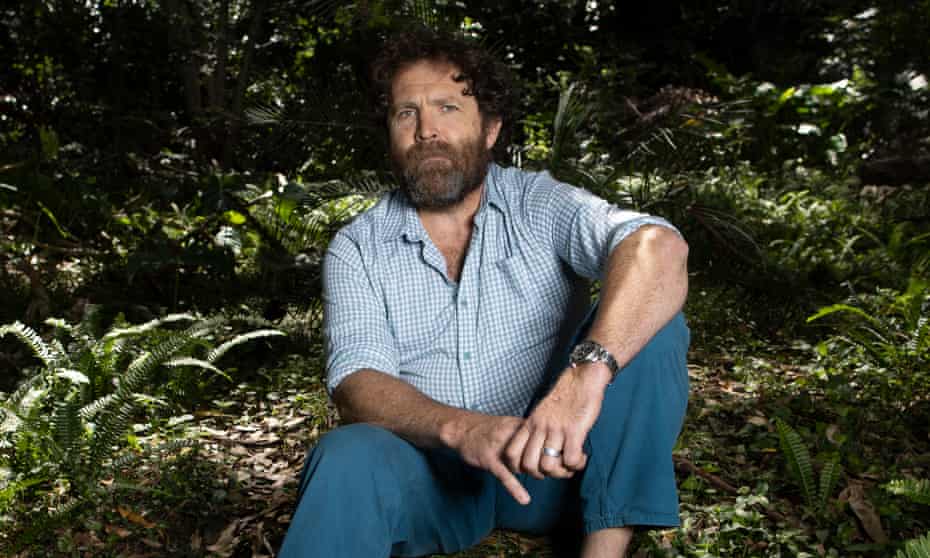
Saul Griffith, inventor, entrepreneur and engineer back home in Austimer, south of Sydney.
After advising US president Joe Biden on energy, Saul Griffith is back in Australia to declare war on the climate crisis.
It is late morning at the home of inventor, entrepreneur and CEO, Saul Griffith, in the coastal village of Austinmer, south of Sydney, and the scene is instantly familiar.
Beach towels and children’s shoes are strewn by the front door; rogue socks and pieces of Lego line the stairwell; breakfast dishes are stacked on the sink: all signs of a household still in the throes of making the lurching transition from the languor of summer holidays to the routines of school term time – right down to the jar of negative rapid antigen Covid tests on the counter. Griffith and his wife, Arwen, apologise: in the morning hubbub – two children off to school, one starting high school – they momentarily forgot I was coming.
The only clue that this is the home of one of this generation’s most brilliant inventors – in 2007 Griffith, who has a masters in engineering from the University of Sydney and a PhD from the Massachusetts Institute of Technology, was awarded a MacArthur Fellowship, known in the Unites States as a “genius grant” – is on the table tennis table, where what looks to be a skateboard hotted-up with an electric motor, sits partially assembled.
“I’m messing around, I have voided the warranty on a whole bunch of electronics on that table tennis table,” Griffith confesses. “It won’t be legal anywhere in the world to use that skateboard.”
Nowadays, any “physical tinkering” Griffith does is “more for therapy” than anything else. Having founded numerous successful clean-tech companies in the US, where he’s lived for the past two decades, and still supervising his office in San Francisco – overseeing a team of 50 people working on commercialising clean technology products – he’s recently shifted the bulk of his professional life towards advocating another approach to the climate crisis.
We have to decarbonise this demand side … or it doesn’t add up
In 2020, Griffith co-founded a non-profit called Rewiring America, which, supported by extensive modelling and costing, advocates the mass electrification of homes. Petrol cars swapped for electric vehicles (EVs), gas heaters replaced by reverse-cycle air conditioners, gas cooktops replaced by induction – with the electricity that powers these devices coming from either renewable sources or nuclear power. (Griffith doesn’t think Australia needs nuclear power – we have enough renewables.)
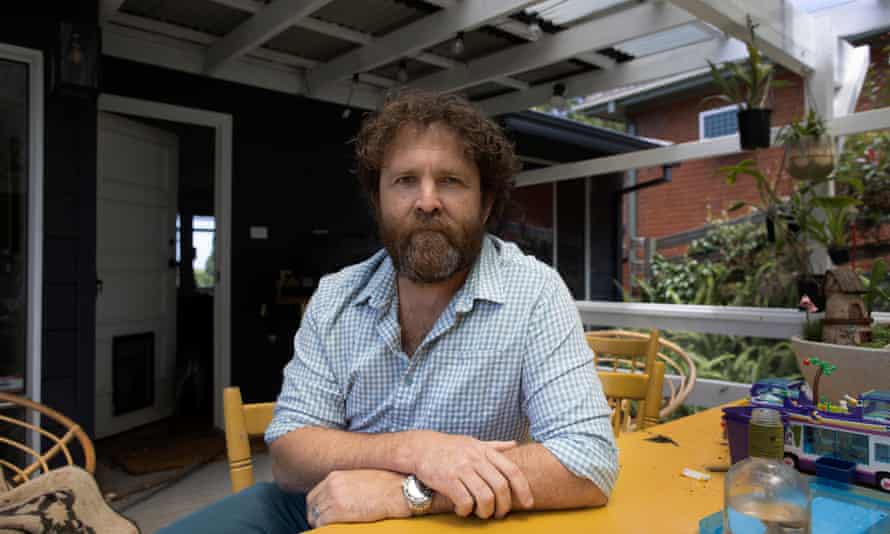
Griffith has been advocating for the mass electrification of homes. Photograph: Mike Bowers/The Guardian
Now he’s back living in Australia – returning primarily for ageing parents and quality of family life – he’s seeing the arguments he started making in America making even more sense. With over three million homes already with rooftop solar, abundant sun and physical space to expand solar farms, he says Australia is uniquely placed to transform into a nation of fully electrified households that will ultimately be cheaper to run. “Australia is the first country in the world where the positive household economics of solving climate change will be realisable by everyday people,” he says.
It’s not a question of living with less, though. Rather, “the answer is just to install so much of this shit that life gets better.”
Griffith believes a huge part of his task is re-framing the narrative about decarbonisation in Australia, which has typically been discussed in terms of loss: lost jobs, higher prices, poorer standards of living. Referencing comments made during the last election campaign by the prime minister, Scott Morrison, that an Opposition proposal to introduce incentives for electric vehicles would “end” the weekend because EVs won’t be able tow a boat or trailer, he says: “Full disclosure. I love muscle cars as much as the next guy. I want my ute to go on weekends too.”
You’re going to get your electric cake and do burnouts too
“The future can be great. That electric Monaro will be zero emissions, a shit load faster than a petrol Monaro, and guilt free. And you don’t drive your vintage Monaro every day, so it’s going to be a great household back-up battery as well. It’s a grid asset.
“The technology has delivered. And there’s no reason not to turn every culture war on its head and just say, ‘No, you’re going to get your electric cake and do burnouts too’”.
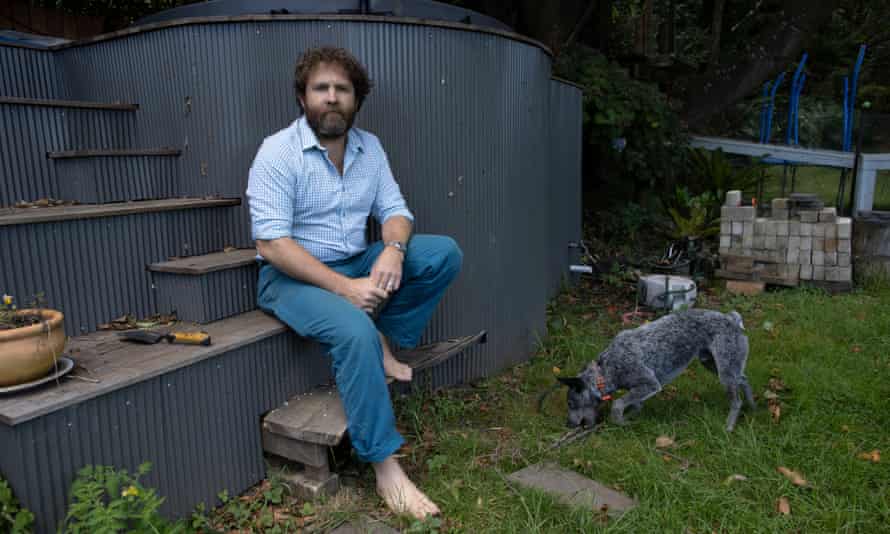
Griffith co-founded a US non-profit called Rewiring America. Photograph: Mike Bowers/The Guardian
Griffith grew up in south-western Sydney; his mother an artist, who painted landscapes and flora and fauna, his father a professor of textile engineering who loved fixing machines and building things. On holidays, the family camped in national parks and snorkelled on the Great Barrier Reef. “There wasn’t any religion in the house other than Attenborough documentaries” Griffith has said of his childhood.
“The piece of the kid that is in me that is really strong, is really the David Attenborough bit, which is holy shit, we’ve got a lot to lose,” he says now. “We spent a lot of time on the reef and it’s not the same any more. It’s terrible. It’s terrifying. So, I viscerally feel the climate change and I worry a lot about it and I worry hugely about it for our kids.”
Can I become an eco-terrorist?
Sitting in his leafy backyard, with the rainforest of the Illawarra escarpment encroaching and the family blue heeler persistently placing sticks before us, Griffith tells the “funny version” of how he shifted from CEO to advocate.
Griffith made some political ground in America. Last year, Rewiring America helped create an electrification caucus in the Senate, started Mayors for Electrification and CEOs for Electrification and worked writing energy policy for president Joe Biden’s Build Back Better plan. However, this legislation now appears to have foundered, if not died, and Griffith concedes the US is in a “dark, tough place” politically, with current climate policy “not nearly what is necessary” to prevent catastrophic global warming.
Griffith thinks all hope now rests on Australia. “If you’re thinking about how do you make the world move faster, someone needs to go first on showing what’s possible. Because then you’ve got a success story that people can be drawn to.”
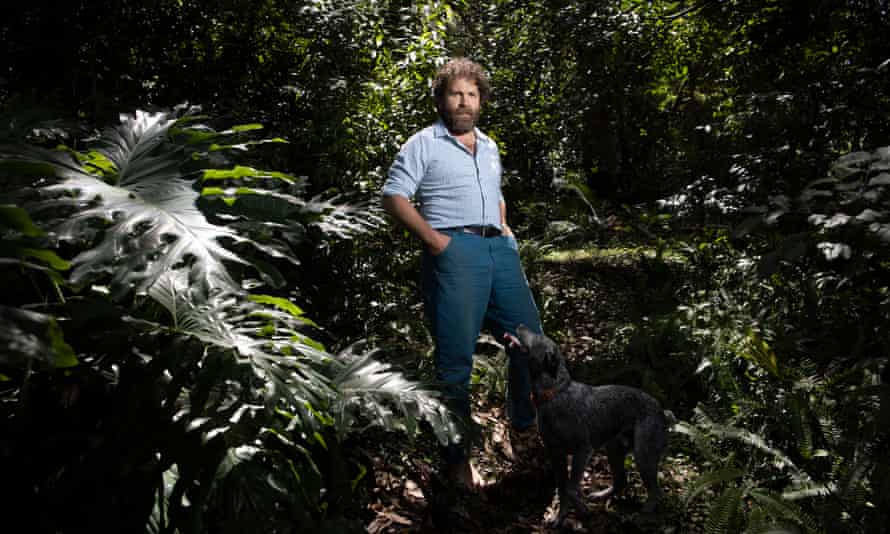
Griffith grew up watching David Attenborough and spending time on the Great Barrier Reef. Photograph: Mike Bowers/The Guardian
His modelling shows that if aggressive electrification starts now, then by 2025, “the numbers flip in favour of electrification: electrifying homes becomes the cheaper option and creates yearly savings for the average household of more than $1,000 per year,” he writes. By 2030, the average Australian household is saving over $5,000 a year.
Jobs are created installing rooftop solar, heat pumps, batteries, new kitchen appliances and vehicle chargers; export industries benefit from an abundance of cheaper, renewable power. “Around a third of the cost of making steel or aluminium is the energy required to make it. If you have the cheapest energy in the world you can make the metals that the world needs at the lowest price,” Griffith writes.
Griffith rates the current federal government policy to reduce greenhouse emissions via “technology not taxes” at “slightly somewhere between zero and one out 10.”

“To lean back and say, ‘technology not taxes’ is to say the free market will solve it all,” he says. “The free market demonstrably cannot solve it. And I can illustrate that point very easily. If the machines that exist on the planet today, if all the cars, all the coal plants, all the natural gas plants, all the ovens and stoves and hot water heaters merely live out their natural life and burn fossil fuels while doing it, those emissions alone take us to 1.8 degrees. The only way to hit a 1.5 degree target is to essentially engineer the economy as soon as fucking possible – with incentives, mandates, rebates and subsidies – to replace all of those machines with something that does the same service with zero emissions.”
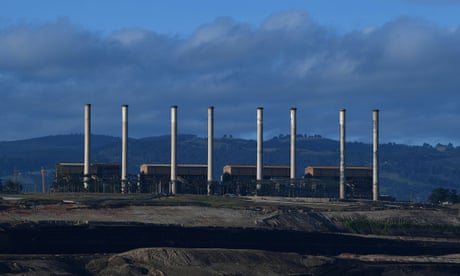
Griffith has already formed allegiances with some state government MPs, including NSW Liberal Treasurer Matt Kean – who has described Griffith as a “sounding board” and a “genius” – and Lily D’Ambrosio, the minister for energy, environment and climate change in the Victorian Labor government.
He hopes his ideas will influence policies in the forthcoming federal election. “I don’t really give a rat’s arse about who wins, I just want to help either or both,” he says. “In the perfect version of events, you can imagine Labor promoting how they’re going to make lower income households afford this sooner and you’d imagine the Liberal party promoting how they’ll provide more freedom of choice. That’s be great. Differing about the details of implementation, not about is the right course.”
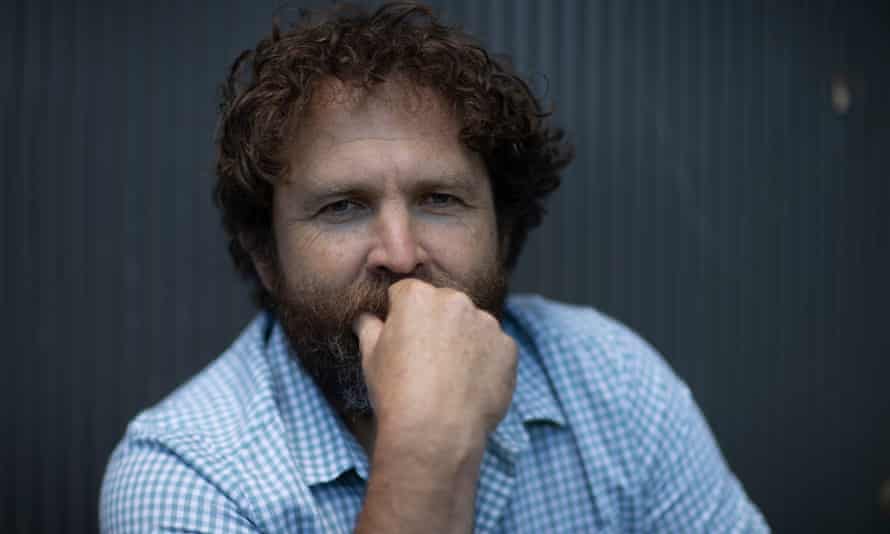
Several state politicians have sought input from the ‘genius’ Griffith. Photograph: Mike Bowers/The Guardian
“I always think of Churchill’s ‘Fight them on the beaches’ speech,” he says, the speech given in 1940 by the British prime minister Winston Churchill to the House of Commons, warning that large tracts of Europe would fall to the Nazis. “Which really, paraphrased, was roughly, ‘We’re fucked. Oh my God, we’re fucked. They have all the weapons. But the only way to die with dignity is go down fighting.’ A little bit, that’s where we are with climate. I’m going to go to down fighting. I’d still think we have a tiny, narrow window where we can limit the damage and have a pretty good outcome. But I think we lose that in the next five years. It’s go time right now.”
No comments:
Post a Comment